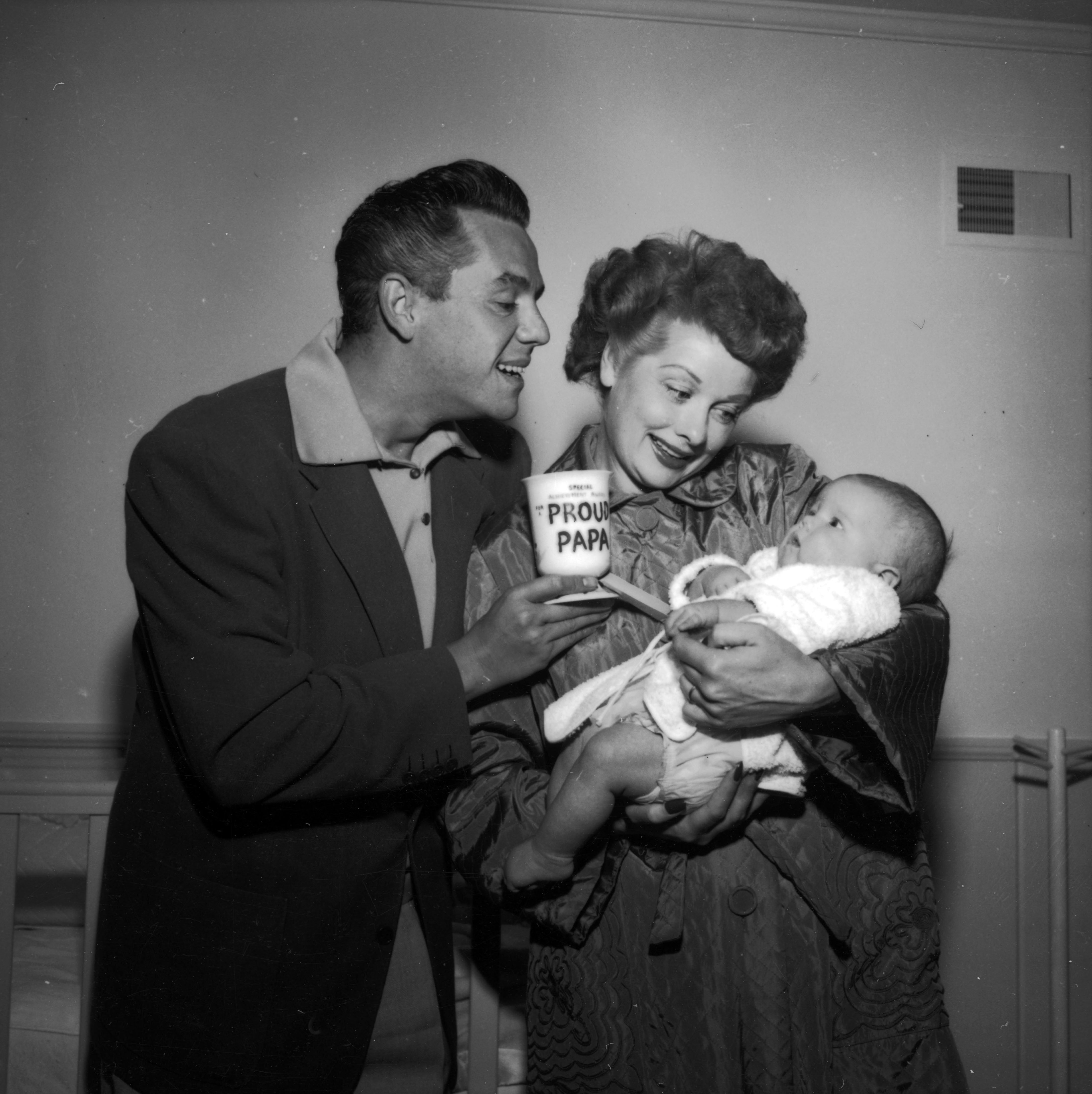‘I Love Lucy’: How Desi Arnaz Won the Battle to Get Lucille Ball’s Pregnancy in the Sitcom’s Storyline
Desi Arnaz and Lucille Ball were a hit on I Love Lucy as Ricky and Lucy Ricardo when the sitcom premiered in October 1951. When the couple found out Ball was expecting their second child in season two, Arnaz wanted to incorporate their happy news into the show even though having a pregnant woman on television was considered taboo at the time.

Desi Arnaz was immediately turned down on having Lucille Ball’s pregnancy on TV
Arnaz and Ball discovered in early 1952 that she was expecting their second child as filming of I Love Lucy’s second season was starting. Since the Ricardos were depicted as not having any kids after 10 years of marriage, Arnaz thought that the couple welcoming a baby would thrill their viewers.
“Lucy and Ricky are married,” Arnaz wrote in his memoir A Book. “She’s pregnant. There is no way we can hide that fact from the audience. We already signed the contracts. This is the number one show on the air. There is only one way to do it – Lucy Ricardo will have a baby.”
At that time, only one other woman had appeared on television while pregnant. Mary Kay Stearns of Mary Kay and Johnny was on the air during her pregnancy in 1948, but only because most homes didn’t have televisions yet. Arnaz was soon told that network execs, sponsors, and advertisers, including tobacco giant Philip Morris, would never approve the storyline.
“I called the Biow agency and told them the situation,” Arnaz explained. “They said… ‘You cannot show a pregnant woman on television’. I called CBS. They had the same answer, and so did the Philip Morris people. No matter how much I argued that Lucy and Ricky were married, that it was a natural thing for them to have a child… They wouldn’t agree to it. They wanted us to do the shows without showing she was pregnant.”
‘I Love Lucy’ star appealed to the head of Philip Morris
The bigwigs that backed I Love Lucy tried to negotiate with Arnaz and offered one or two shows revealing Ball’s pregnancy, but he refused. He wanted to show Lucy and Ricky experiencing all the aspects of expecting their first child. Arnaz had a good rapport with Alfred Lyons, chairman of the board at Philip Morris, and personally contacted him via letter to lobby for the storyline. The actor also reminded Lyons that he and Ball were delivering a moneymaking show.
“I guess it all comes down to you,” Arnaz wrote in his letter to Lyons. “You are the man who is paying the money for this show and I guess I will have to do whatever you decide. There’s only one thing I want to make certain that you understand. We have given you the number one show in the country and, up til now, the creative decisions have been in our hands. Your people are now telling us we cannot do this, so the only thing I want from you, if you agree with them, is that you must inform them that we will not accept them telling us what not to do unless, in the future, they will also tell us what to do.
At that point, and if this is your decision, we will cease to be responsible to you for the show being the number one show on television, and you will have to look to your people, to the network, and to the Biow Agency for that responsibility.
Thank you very much for all you have done for us in the past.
– from A Book by Desi Arnaz
‘Lucy Goes to the Hospital’ crushed it in ratings
After Arnaz sent his letter, all protests about the “pregnant” shows ceased. He moved ahead with all of his creative plans for season two and spotlighted Lucy and Ricky having a their first child. Arnaz didn’t try to find out why he was given the green light and just assumed Lyons went to bat for him.
I Love Lucy broke records that season, with over 44 million viewers tuning in to see “Lucy Goes to the Hospital,” where the couple welcomes Little Ricky on January 19, 1953. The episode even topped President Dwight Eisenhower’s inauguration the following day.
The I Love Lucy star didn’t discover until years later exactly what had convinced everyone to back off and permit Ball’s pregnancy on the air. During a visit in New York, he spoke with Lyons’ assistant at Philip Morris, who showed him a brief yet strongly worded memo Lyons had sent out after Arnaz had contacted him.
“The memo, sent from England, read: ‘Too whom it may concern: Don’t f*** around with the Cuban! Signed, A.L.,'” Arnaz recalled. “I almost fell to the floor. What a great old man he was!”


